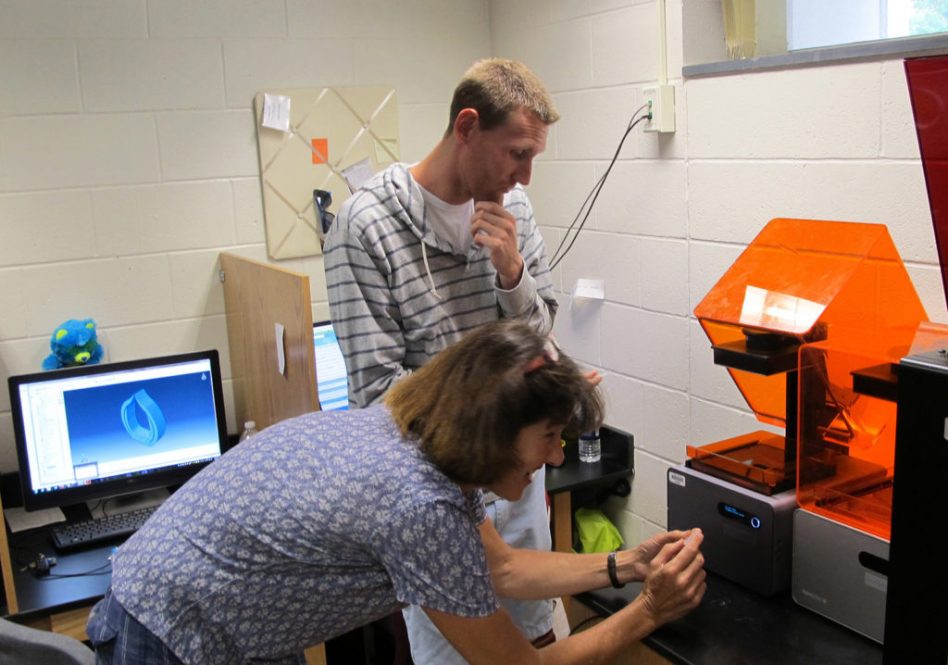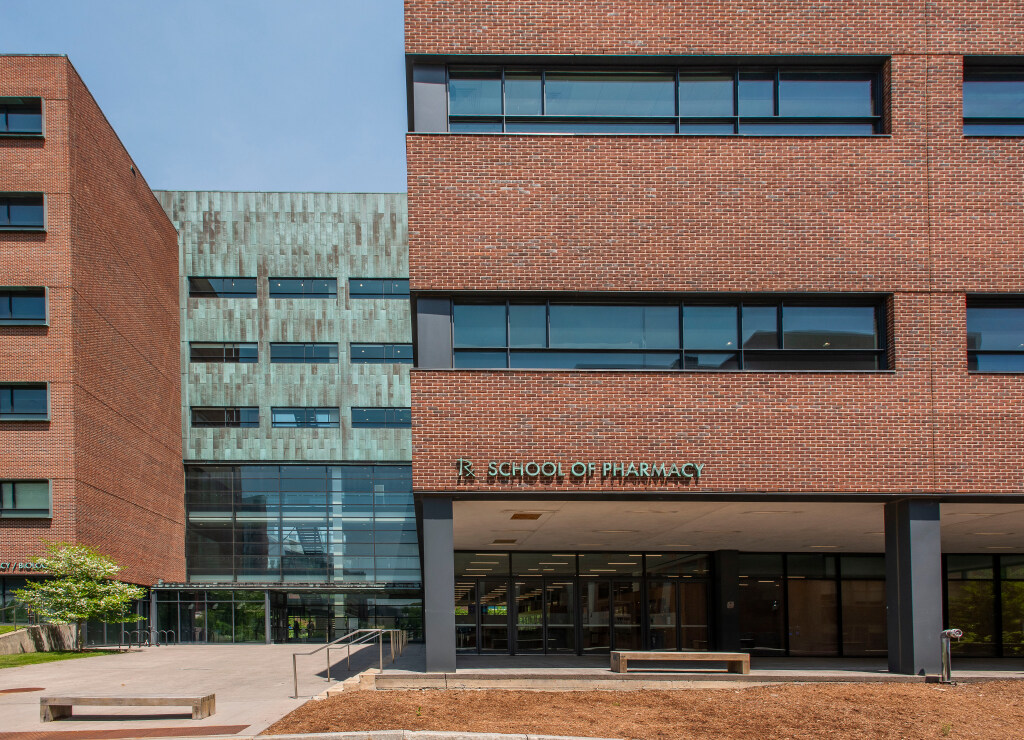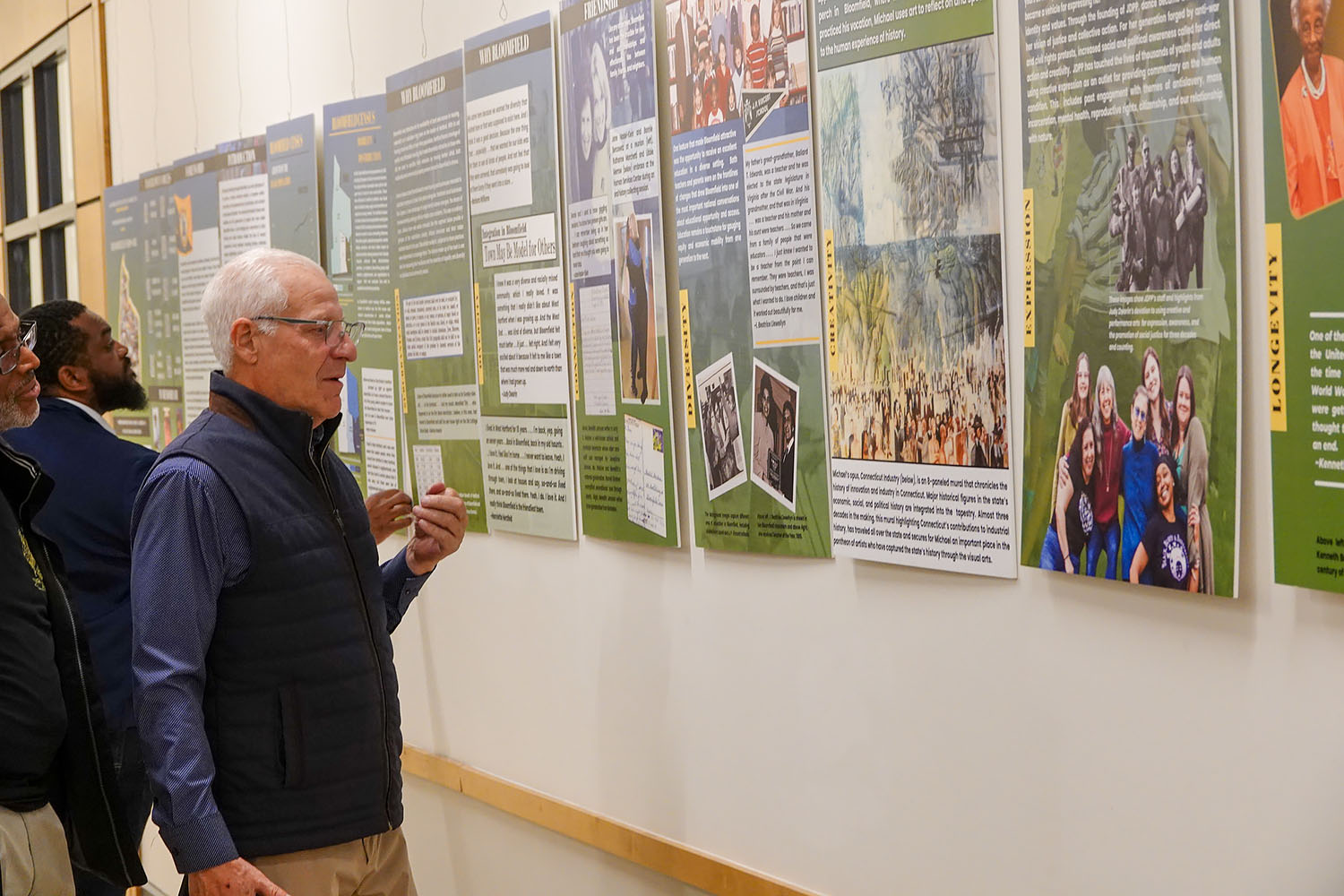By Josh Garvey
To slow the flow of blood into a UConn lab device that levitates blood cells using magnetism, Celeste Estevez and another local middle school teacher tried modifying the equipment in a number of ways. At first capillaries broke and the tubes clogged, but eventually they succeeded.
The perseverance required to troubleshoot the scientific experiment was something Estevez said she will take back to her classroom in Tolland this year.
“Having failed day after day and struggled through that, I think it puts me on better ground with the kids to understand when they’re struggling and what that’s like,” said Estevez, one of more than a dozen local teachers in UConn’s summer research program.
The Joule Fellows Program, a six-week experience funded by the National Science Foundation, enables STEM teachers from secondary schools and community colleges to work in a university laboratory on an existing research project. The fellows worked in teams with a faculty member and a graduate or undergraduate student buddy on an existing research project.
To help translate the lessons learned in the lab to their classrooms, the fellows participated in the DaVinci Project, which incorporates engineering into math, science and technology courses. The DaVinci Project offers information about the wide variety of engineering disciplines and opportunities available to their students.

There were also networking events as a part of the program.
“We want you to create a network for each other, so that you can help each other,” said Aida Ghiaei, program manager and organizer of the fellows program. One aspect of the networking opportunities included weekly lunches where the current fellows could meet together along with faculty, past participants and other engineering personnel.
Katherine Nuzzo, who was a previous Joule Fellow, said that the experience and connections gained during the fellowship was a vital resource to her curriculum.
“Because of the fellowship, we were able to plan a field trip here to UConn. It was a nice experience, to have high school students able to talk to a college professor,” Nuzzo said.
William Eller, from Smith Middle School in Glastonbury, worked with Estevez on the Tasoglu Lab’s cellphone-based cell separator. The device can be used to identify cancer cells but a pump used to push blood through the device needed to be slowed to identify the cells. Eller and Estevez needed to find a way to slow the flow of blood in the device.
“We had to do a lot of different modifications. Some days we went through the whole day just trying to get the device to work with our new specs,” he said.
The experience, said Estevez, will allow her to guide students with an interest in science and math into engineering. “It gives me the tools and information to go back to my school and tell them where engineering is today.”



